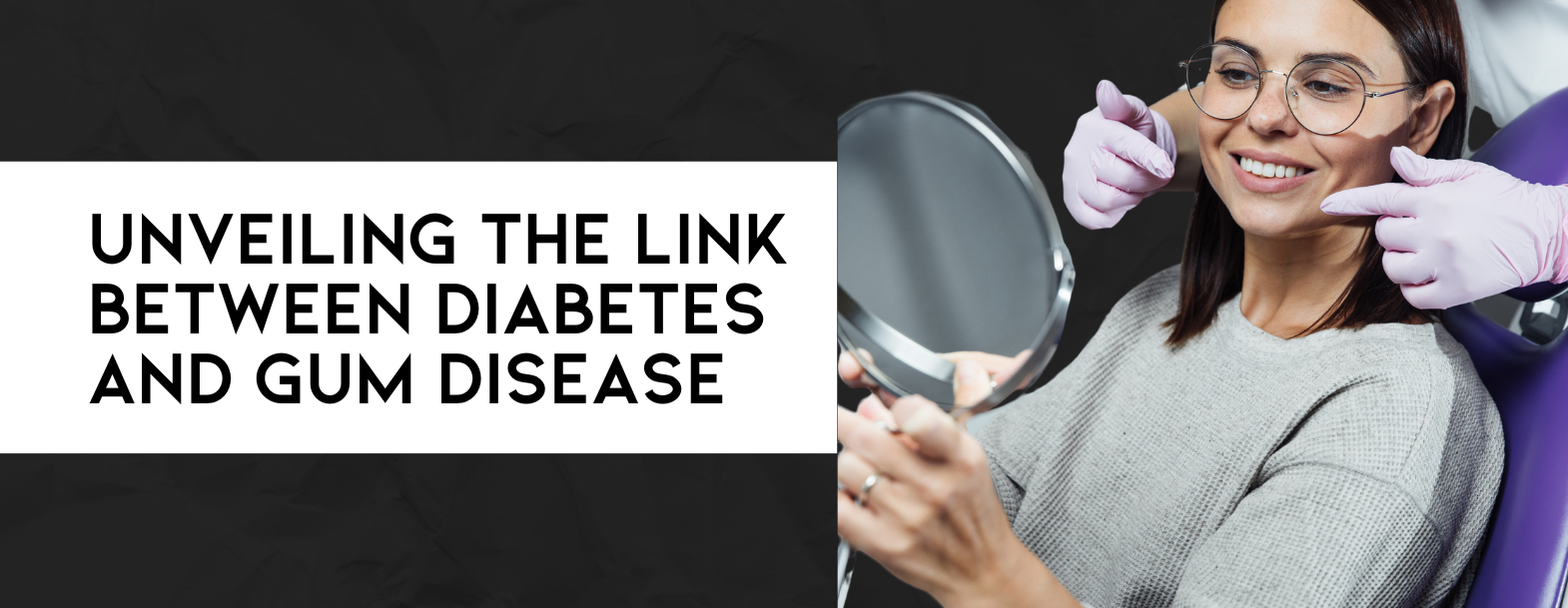In recent years, an increasing body of research has shed light on the intricate relationship between diabetes and gum disease. The correlation between these two conditions goes beyond mere coincidence, with compelling evidence suggesting a bidirectional link that can significantly impact both oral and systemic health. Let's delve into this complex interplay and explore the key insights provided by leading experts in periodontology.

Diabetes, a chronic metabolic disorder characterized by elevated blood sugar levels, has long been recognized as a significant risk factor for periodontal disease. Conversely, emerging evidence suggests that periodontal disease, affecting the gums and supporting structures of the teeth, may exacerbate glycaemic control in individuals with diabetes. This bidirectional relationship underscores the importance of comprehensive oral care in managing diabetes and mitigating its complications.
The British Society of Periodontology (BSP) provides valuable insights into the intricate interplay between diabetes and gum disease. According to BSP, individuals with diabetes are more susceptible to periodontal disease due to impaired immune function, delayed wound healing, and heightened inflammatory response. Moreover, poorly controlled diabetes can exacerbate the severity of periodontal disease, leading to increased tooth loss and oral complications.
Gum disease, if left untreated, can wreak havoc on oral health. It can cause symptoms such as gum inflammation, bleeding, and eventual tooth loss. In individuals with diabetes, the stakes are even higher, as uncontrolled periodontal disease can further compromise glycaemic control and exacerbate systemic inflammation. This vicious cycle underscores the importance of proactive dental care and regular periodontal screenings for individuals living with diabetes.
Managing periodontal disease in individuals with diabetes requires a multifaceted approach that addresses both oral hygiene and glycaemic control. The BSP stresses collaboration between dental and medical pros to enhance treatment and overall health for diabetic patients. Integrating gum care into diabetes management empowers patients to manage oral health and cut diabetes-related risks.
Education plays a pivotal role in empowering patients to proactively manage their oral health and diabetes. By raising awareness of the link between diabetes and gum disease, healthcare professionals can empower patients to adopt healthy lifestyle behaviours. Such as regular dental visits, meticulous oral hygiene practices, and blood sugar monitoring. Moreover, fostering open communication between patients and healthcare providers can facilitate early detection and intervention, ultimately improving treatment outcomes and quality of life.
The diabetes-gum disease link underscores the need for thorough oral care to manage diabetes and lower associated risks. Leveraging insights from groups like the British Society of Periodontology, healthcare pros can integrate gum care into diabetes management, enhancing patient outcomes. Let’s unite oral and systemic health to empower those with diabetes toward better lives.
Joanna Edwards: Certificate of Proficiency in Dental Hygiene 1988
Jill Hetherington: Diploma in Dental Hygiene 2000
Kelly Gillard: BSc Dental Hygiene and Dental Therapy Peninsula Dental School 2018
Chloe Evans: BSCs (Hons) Dental Hygiene and Dental Therapy Cardiff University 2021
Rebecca Evans: BSc Dental Hygiene and Dental Therapy University of Plymouth 2018
Back to Blog